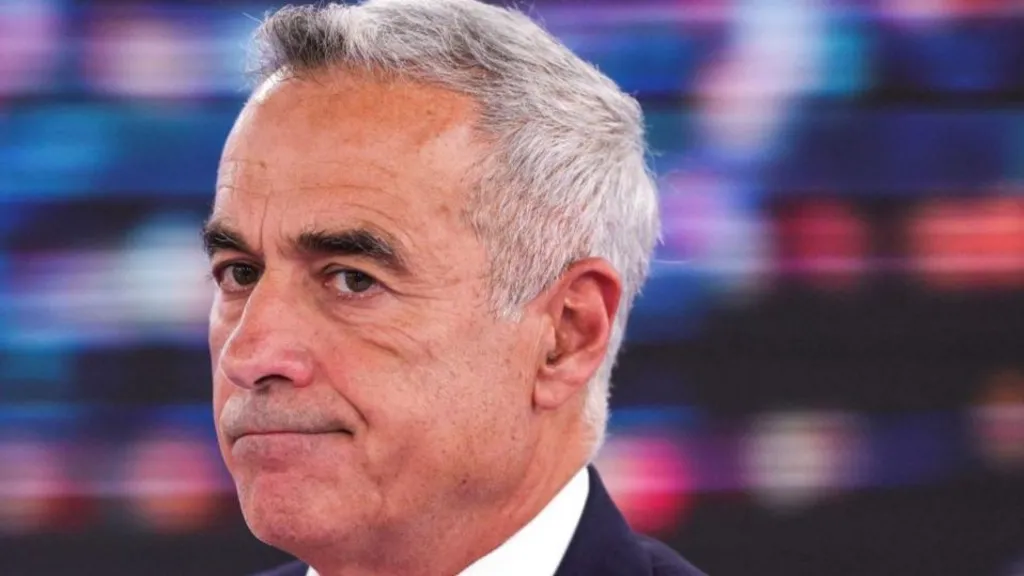Georgescu’s early showing stuns Romania and allies
3 min read
Reuters
In a stunning turn of events, Calin Georgescu, an independent candidate with nationalist leanings, emerged as the frontrunner in Romania’s presidential election after the first round of voting on Sunday. His unexpected success has sent shockwaves through Romania and alarmed its Western allies.
Georgescu, a 62-year-old expert in sustainable development and agriculture, has no political party affiliation but has strong ties to the nationalist Alliance for the Union of Romanians (AUR). His platform calls for a radical transformation of Romania, advocating for small-scale organic farming, the promotion of Christian values, and the restoration of national sovereignty. His proposals are reminiscent of some populist rhetoric seen internationally, such as that of Robert F. Kennedy Jr. in the U.S. or even Donald Trump’s calls for national renewal. In a series of TikTok videos, Georgescu is seen bathing in icy water, symbolizing his tough and unyielding image.
Georgescu’s background includes significant experience in Romania’s Foreign Ministry, as well as involvement with various think tanks and NGOs connected to the United Nations. These roles have given him credibility, particularly among those who feel Romania should chart an independent course in the face of increasing external pressures.
A major driver behind Georgescu’s rapid rise in popularity is his promise to “restore Romania’s dignity” by reducing the country’s dependence on international organizations like NATO and the European Union. The president of Romania holds significant sway over foreign policy, and Georgescu’s stance on national sovereignty has resonated deeply with voters. Romania has been a strong ally of the U.S. and NATO, hosting critical military bases and playing an important logistical role in monitoring the ongoing war in neighboring Ukraine. However, Georgescu has been outspoken in criticizing the U.S.-supplied missile defense shield at the Deveselu base, calling it “a diplomatic embarrassment” and echoing Russian narratives about NATO aggression toward Moscow.
Georgescu’s campaign explicitly states that Romania will honor its international commitments only if those alliances and organizations respect Romania’s interests. This approach has raised concerns, particularly among Romania’s Western partners. In a 2018 interview, Georgescu went as far as to describe Russian President Vladimir Putin as “one of the few true leaders in the world,” a sentiment that has earned him a reputation as a pro-Russian politician. Although Georgescu has distanced himself from a full alignment with the Kremlin, his victory was celebrated in Russian media outlets such as Sputnik and Russia Today.
Some political analysts have compared Georgescu to Hungary’s Prime Minister Viktor Orban, noting their shared interest in ending the war in Ukraine and advocating for a Europe that prioritizes peace and national sovereignty. This comparison could lead to closer ties between Romania and Hungary if Georgescu secures the presidency.
One of Georgescu’s most controversial stances concerns his admiration for leaders of Romania’s Iron Guard, a fascist and ultra-nationalist movement active in the early to mid-20th century. He described these figures as “heroes,” which led to his expulsion from AUR, as the party distanced itself from his more extreme views. Despite these controversies, Georgescu has vehemently denied any accusations of antisemitism or xenophobia, asserting that his platform is grounded in Romanian patriotism and Christian values.
A key element of Georgescu’s success has been his mastery of social media, particularly TikTok. His follower count on the platform skyrocketed from 30,000 to over 330,000 in just two weeks, with his videos garnering millions of likes. This digital reach played a crucial role in securing over two million votes in the election. His ability to connect with younger voters through social media has given him a significant advantage in the race.
Georgescu’s strong showing in the first round has now set the stage for a competitive run-off election. While he remains a divisive figure in Romanian politics, his unexpected rise underscores the growing dissatisfaction among many Romanians with the political establishment and their desire for change. Whether he can consolidate his support and challenge Romania’s traditional alliances in the second round remains to be seen. However, his early success is already reshaping the political landscape and raising concerns about Romania’s future direction.





